‘Unifying civilian voices, halting the war, and delivering relief to Sudan are an urgent priority’
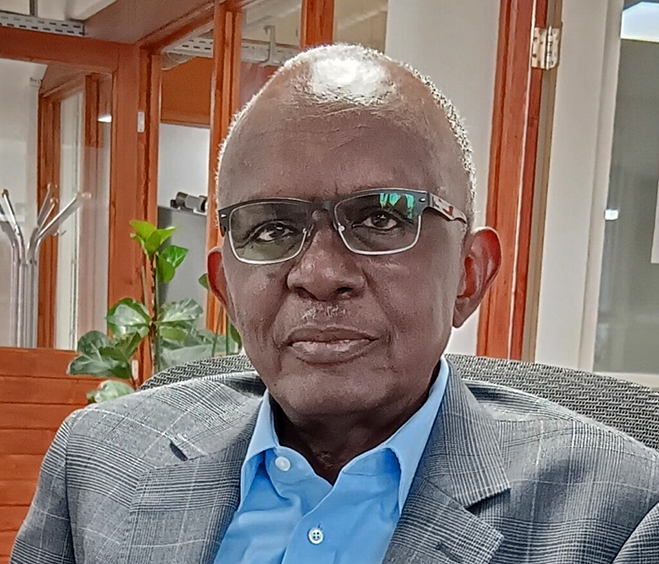
Dr Suleiman Baldo, Executive Director of the Sudan Transparency and Policy Tracker (STPT) during a visit to RD Studios in Amsterdam in 2023 (RD)
Amid the litany atrocities committed by both sides during more than two years of war, and the almost complete absence of the international community, “Sudan has turned into a failed, forgotten and neglected state,” laments Dr Suleiman Baldo, Executive Director of the Sudan Transparency and Policy Tracker (STPT).
In an exclusive interview with Radio Dabanga Editor in Chief Kamal Elsadig, broadcast (in Arabic) on the programme Plain Speaking over two episodes on Saturday and Sunday, STPT director Dr Suleiman Baldo describes the situation in Sudan and Darfur is “nothing less than calamitous”. He explains how “the fighting has destroyed all aspects of life, transformed an entire nation, into internally displaced people, refugees, starving and struggling for survival. Both sides of the war insist on continuing and winning by defeating or surrendering to the other side. The international community is almost completely absent from Sudan, which, amid all these atrocities and gross violations of human rights, has turned into a failed, forgotten, and neglected state.”
‘Amid all these atrocities and gross violations of human rights, Sudan has turned into a failed, forgotten and neglected state…’
Despite the passage of more than two years since the devastating war waged by the Sudanese Armed Forces (SAF) and the paramilitary Rapid Support Forces (RSF) against Sudanese civilians, neither side has achieved decisive progress in the battles that began on April 15, 2023, with the exception of the quick and decisive victories achieved by the RSF in the first year of the war, when it took control of the capital, Khartoum, and the states of El Gezira and Sennar in central Sudan. However, all El Gezira and Sennar, and the capital, Khartoum, from the RSF and expelled them. The battles then moved to western Sudan, where fighting is currently taking place in North Kordofan and around its capital, El Obeid, and the city of El Fasher, which has been besieged by the RSF in North Darfur for more than 500 days.
‘In war there are no winners, only losers…’
Baldo: “There is no military progress in the war that has now spread to western Sudan, but there are high losses among fighters and civilians as well, due to the resort of both warring parties to attacking civilians with aircraft by the SAF, and artillery shelling and other heavy weapons by the RSF against citizens and their gathering places “with a narrow and criminal mentality in the concept of collective punishment of civilians in areas controlled by the other party.” Baldo cites the atrocities committed by the RSF against civilians in villages around Bara and El Obeid, and their siege of the city, home to the largest stock exchange for traditional crops, the main market, and the capital of North Kordofan. He explains that the SAF, in turn, launched airstrikes on markets in Darfur and Kordofan, as well as cities such as El Koma, Kutum, Mellit, Nyala, and El Daein, with the aim of preventing the return of economic life and the normal lives of citizens in those areas.
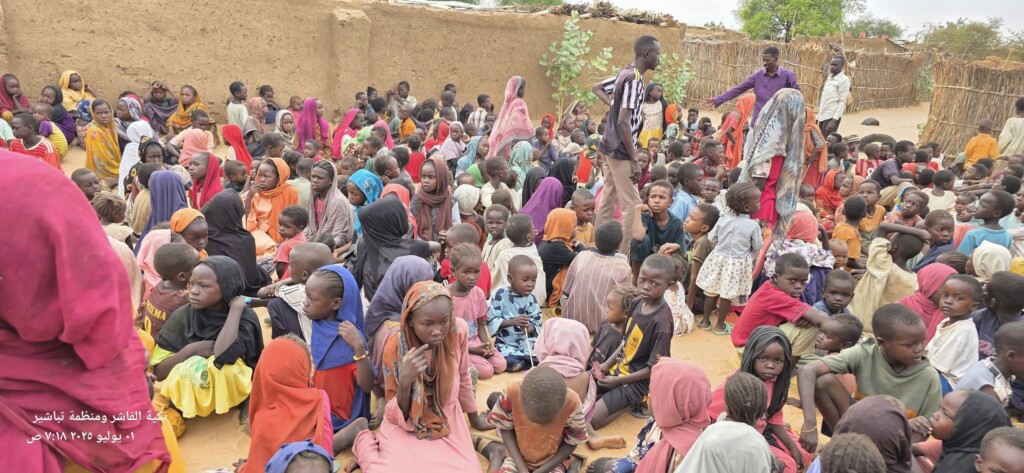
‘The tragedy has turned El Fasher into a city of famine, with daily deaths of children from malnutrition, and those who did not die of hunger died from the bombardments that rain down on the city and the camps for the displaced daily…’
Baldo stresses that the attack on civilian targets means that every means of livelihood has become a military target for both sides of the conflict, which is unfortunate and catastrophic. Baldo describes the siege imposed by the RSF on El Fasher for more than 500 days as “a tragedy that has turned El Fasher into a city of famine, with daily deaths of children from malnutrition, and those who did not die of hunger died from the bombardments that rain down on the city and the camps for the displaced daily.” He explains that leaving El Fasher has become “difficult and dangerous today, and anyone who tries to leave at a young age is subject to liquidation on charges of belonging to the army or the joint forces allied with the SAF.”
Four areas of influence of competing administrative units
Baldo believes that “the ongoing war today has produced four areas of influence for competing administrative units, namely: Port Sudan Burhan, Nyala Hemedti, Jebel Marra Abdel Wahid and the Nuba Mountains El Hilu, in the context of his comment on the official emergence of two governments in Sudan established in Nyala headed by Hemedti and its Prime Minister El Taayshi and the de facto government in Port Sudan headed by El Burhan and its Prime Minister Kamil Idris. He adds It is noticeable that the two governments established in Nyala and El Amal in Port Sudan are both under the military control of the RSF and the SAF, and the civilians in them have no authority, and they are destinations for warring military authorities on the ground.”
He explains that there is a difference in this regard, which is that the Port Sudan government is dealt with by the international community as a de facto government, due to its dominance over the central apparatus of the state, and it is viewed in this area as the state authority, and thus, as Baldo says there is an implicit recognition of the Port Sudan government as a de facto government, referring to the call for The United Nations has sent Lieutenant General Burhan and Prime Minister Kamil Idriss to New York to address the UN General Assembly this month.
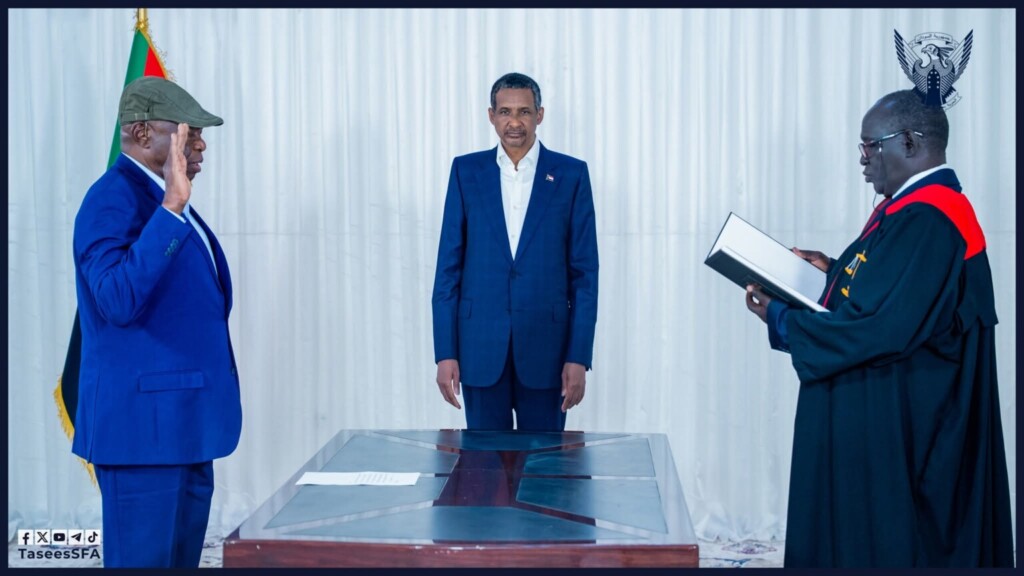
The Founding Government, Port Sudan, and the dangers of division
He says that the rush by the ‘Founding Government’, which chose Nyala as its capital, to appoint a representative to the United Nations last week, aims to gain international recognition, “but that will not happen”. He adds that “the United Nations will not accept a representative of a parallel government that has not yet been recognised by any party in the international community, and a founding government led by Hemeti, the commander of the RSF, will face the lack of recognition of countries in the international community). He continued. “Regardless of international recognition or not, dividing Sudan into two areas of influence, each with its own administration and economy, and without legitimacy, will weaken Sudan, its prestige, and its international reputation.”
In response to a question about: Will the existence of two governments in Sudan today lead to accelerating the solution and stopping the war? Or to further complication and the division of Sudan? Baldo answers with two scenarios, the first: It will lead to accelerating the solution and stopping the war through the possibilities behind forming an alliance to establish his presidential council and appoint a prime minister, which is preparing for the upcoming negotiations with the guise of a government parallel to the de facto government in Port Sudan and its allies. He adds “In such a case, the solution may be accelerated.”
Baldo explains that the second scenario is the division of the country, which in his opinion is a real and present danger, given the speeches issued by the leaders of both sides and their allies about moving forward with the fighting and achieving a military victory over the other side and completely destroying it. He added, “This is unrealistic… neither side has the military ability to defeat the other on the battlefield and remove it from the negotiations in defeat.” He continued, saying, “The inability of one side to defeat the other makes the process of division continuous and gradually this will lead to an actual division of the country, if not a legal division.”
‘Sudan is the forgotten country… out of sight, out of mind…’
Regarding the international community and what is happening in Sudan, Baldo stresses that Sudan “has become internationally neglected and is not mentioned by the media or governments in their interaction with major world events.” He says that the international community, unfortunately, has not given priority to the situation in Sudan, “It has become exhausted from its continuous wars and its unstable situation for decades.” He explains that there had been an improvement in Sudan’s image in the eyes of the international community earlier “with the overthrow of Bashir’s rule in the December revolution and the world’s interaction with it, and it began to recover, but all of that quickly evaporated and disappeared, with the October 2 coup, and it sank to the depths of being crushed and is now being treated like a failed and internationally neglected state.”
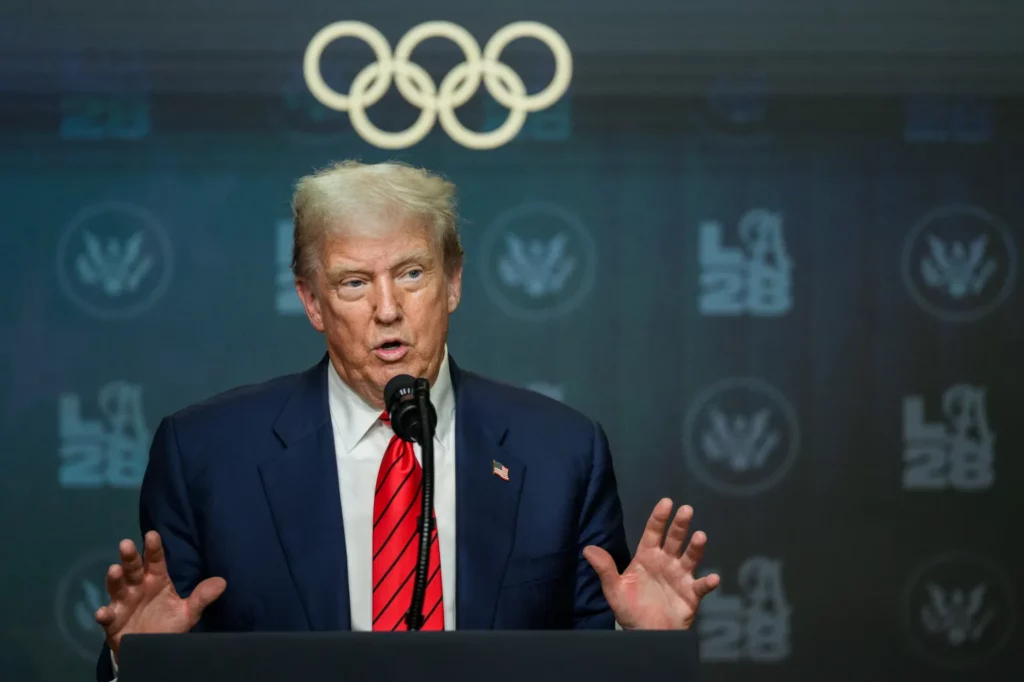
The Trump administration and Sudan peace
He explains that the Quartet initiative, which includes the United States, Saudi Arabia, Egypt, and the UAE, is an attempt by the Trump administration to reach a ceasefire in Sudan linked to the delivery of humanitarian aid and the protection of civilians. However, this quartet attempt was blocked by a solid rock related to the disagreements between the supporters of the two warring parties in Sudan, Egypt, and the UAE.) He says that America, when it saw that Egypt and the UAE were unable to overcome extremism in supporting the two warring parties, as Egypt fully supports the SAF militarily and diplomatically, while the UAE fully supports the RSF with weapons and mercenaries, America decided to bypass Egypt and the UAE, and communicate directly with the two warring parties. In this regard, President Trump’s advisor for African affairs, Musaad Boulos, met with the army commander, Lieutenant General Burhan, in Zurich, Switzerland, recently.) Baldo expects that Boulos had communicated directly with the RSF and its leadership, but we do not know the results due to the extreme secrecy surrounding these contacts). He says that the Sudanese today hope that these efforts will result in a ceasefire and the delivery of aid to millions of Sudanese who are on the brink of famine, as about 13 million face famine.
Regional initiatives off the table
Regarding the ongoing regional initiatives and efforts to stop the war in Sudan, Baldo gave a comprehensive explanation during the interview of the difficulties that caused them to retreat and die, led by the African Union. He explains that the African Union, unfortunately, removed itself from the role of neutral mediator by recently standing and siding with the de facto government
in Port Sudan. He cites statements by its representative to Sudan about Egyptian encouragement and influence to align with the government in Port Sudan. He explains that the United Nations, on the other hand, is completely absent from the scene and has marginalised itself to a large extent, rendering it non-existent, while the European effort has stagnated in place, after the failure of the London Conference last April, initiated by Britain, due to the confrontation and direct disagreement that occurred between Egypt and the UAE, the main supporters of the two warring parties (the army and the RSF). He explains that the conflict between the countries of the region that thwarted the London Conference, “almost failed the Quartet Initiative had it not been for America’s confrontation and unilateral contact with the two warring parties.”
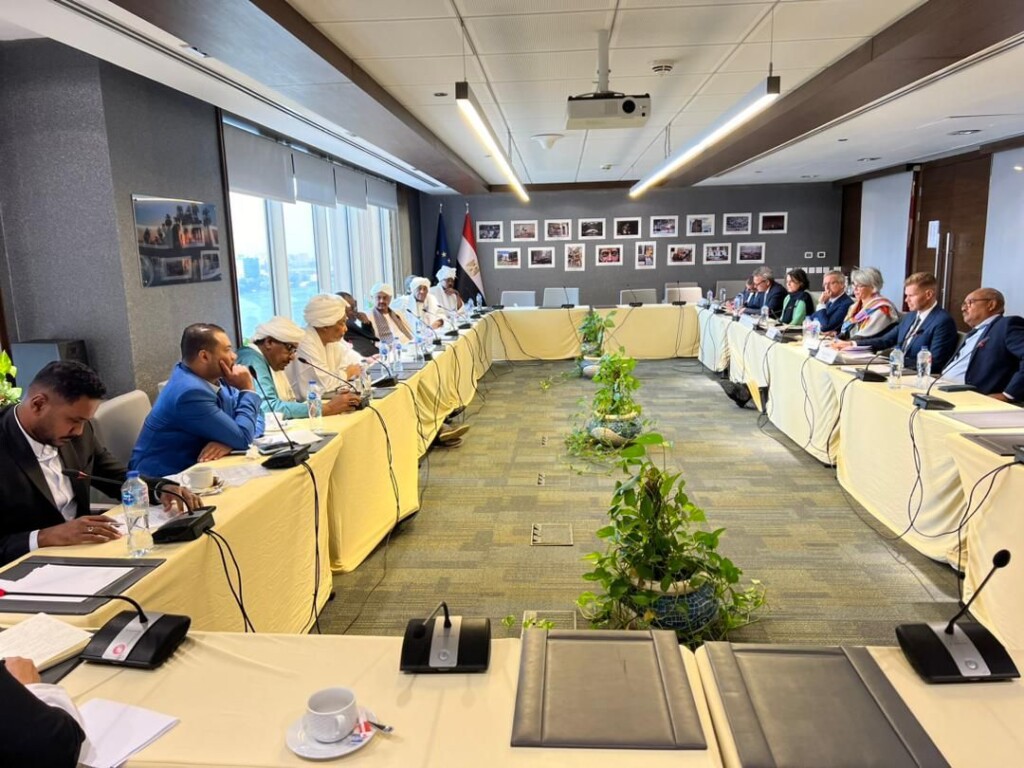
An immediate ceasefire required now
Baldo stresses that “what is urgently required now is a genuine will from the SAF and the RSF to stop the war, despite their clear insistence on military victory as the only solution to the war, despite the fact that neither side has the capacity to completely defeat the other.” He stresses that “this insistence, confirms that neither side has the political will, which imposes a necessary situation on international parties to lead the negotiation process to stop the war in Sudan.”
He explains that the failure of regional mediation and its loss of credibility as a result of the clear bias recently shown by the African Union, makes the US-led Quartet Initiative the only one on the scene and the only one that can be relied upon to reach a quick solution to the process of stopping the fighting in Sudan. He stresses that the ceasefire or cessation of hostilities required now does not mean ending the war. He added: “A cessation of hostilities is a process of dialogue between the two warring parties, and if neither side shows the will to achieve this, a ceasefire should be imposed on them by tightening all sanctions currently in effect on the military leaders, business kingdoms, companies, and financial networks of both sides”. He continued, “What is required now is to escalate and intensify pressure and sanctions to force both parties to come to the negotiating table and immediately agree to a ceasefire and allow humanitarian aid to reach millions of affected people in Sudan.” Baldo expressed his hope that this would happen in the coming days and weeks.
Countries supporting Burhan and Hemedti: the UAE and Egypt
Regarding the countries supporting both sides of the war and the role of the international community in neutralising and curbing them, Blue enumerated the countries that provide support and back each side. He says that the de facto government in Port Sudan receives full and direct support from Egypt, and that Qatar, Türkiye, Russia, and Iran later joined it. He explained that all these countries are involved in the military conflict in Sudan based on their own interests and the interests of their countries.
He added, “Iran wants positions on the Red Sea, and Russia is determined to implement the agreement it signed with the regime of ousted President Omar Al Bashir, under which it was granted a base on the Red Sea, but this has not yet been implemented.” He continued, “The UAE supports the RSF and supplies them with weapons and mercenaries without limits.” He added, “As we speak now, there are dozens of flights to deliver military aid from the UAE to the RSF, not through Somalia or Chad, but via Libya via the areas controlled by Khalifa Haftar in southern Libya.” He added, “There are dozens of planes arriving directly from the UAE to Kufra in Libya and from there to the RSF in Darfur.”
Internal support: gold, gum arabic, livestock, and petroleum
Despite the war’s destruction of Sudan’s economy, trade, industry, and other resources, both warring parties have remained steadfast despite the country’s bankruptcy, contrary to expectations. They have continued to mobilise armies and militias and bring in more modern and diverse weapons, drones and even aircraft every day.
Baldo attributed this to the large availability of gold in Sudan. He explained that this resource is dominated by both warring parties, as they control its production and trade and control its smuggling channels, with gold production going to the Emirates and the revenues going to the war efforts of both parties.
Baldo also pointed to Sudan’s other traditional resources, most notably gum arabic, livestock and oilseeds, whose export revenues are also used to support the war efforts of both parties by controlling their trade, export routes and revenues across areas under their control.
He says that since October 24, the RSF have been regulating the movement of these agricultural and animal products and preventing their passage into areas under the control of the SAF. Instead, there has been informal trade, known as smuggling, between the RSF’ areas and neighbouring countries.

A quagmire within a country and South Sudan is a hostage to war
Baldo explains that other products, such as sesame and gum arabic, go to Chad, Libya, South Sudan, and East African countries such as Kenya and Uganda, where revenues are controlled by RSF leaders. He pointed out that the Rapid Support
Forces have other sources of income, represented by the taxes they impose on commercial traffic through their control of export routes to neighbouring countries, in addition to their control over smuggled fuel and its trade in Darfur. In the interview, Baldo pointed to the recent involvement of oil in the war. He cited the recent attack by the RSF on oil-producing areas in Heglig, West Kordofan State, with the aim of preventing the flow of South Sudanese oil through pipelines to Bashayer Port on the Red Sea for export. This was intended to prevent the government in Port Sudan from benefiting from export revenues, one of the main sources of income for the Port Sudan government.
He emphasises that stopping the flow of South Sudanese oil through pipelines to Port Sudan would have dire consequences for Juba, as it is the main source of income for the South Sudanese economy. And thus, Baldo says, “South Sudan has become a hostage to the war in Sudan”.
Unifying the voice of civil forces
Regarding the inability of the Sudanese civil and political forces and civil society organisations to unite around a unified vision, and their fragmentation and division into competing and conflicting groups, who do not agree on a minimum level, Baldo calls for not despairing of the civil forces, which he says have an actual presence today, and an unusual momentum, compared to other conflict zones, such as Libya, Yemen, South Sudan, and others. He stresses that the Sudanese civil forces “do not have to unite into one entity, but rather they must unite in their messages to the international community, regarding their visions and priorities for achieving peace in Sudan.”
‘We can no longer trust the military, nor their wisdom. Civilians must have the loudest and most powerful voice in this matter…’
Baldo adds that what is required today, at this moment, is for civilian forces to unify their voices to demand peace and an end to the war in Sudan. In this regard, he refers to ongoing efforts to unify the voice of civilians and coordination initiatives to unify the content of the messages they are launching. He stresses that the top priority now is for civilians. “They must unite and escalate in calling for an immediate ceasefire and the delivery of aid to save millions of Sudanese from starvation.” He added, “A ceasefire is an urgent need, negotiated by regional or international mediators.” In this regard, he refers to American action in this area, with a degree of coordination with Britain and the European Union, and to notifying the African Union to be aware of the situation.
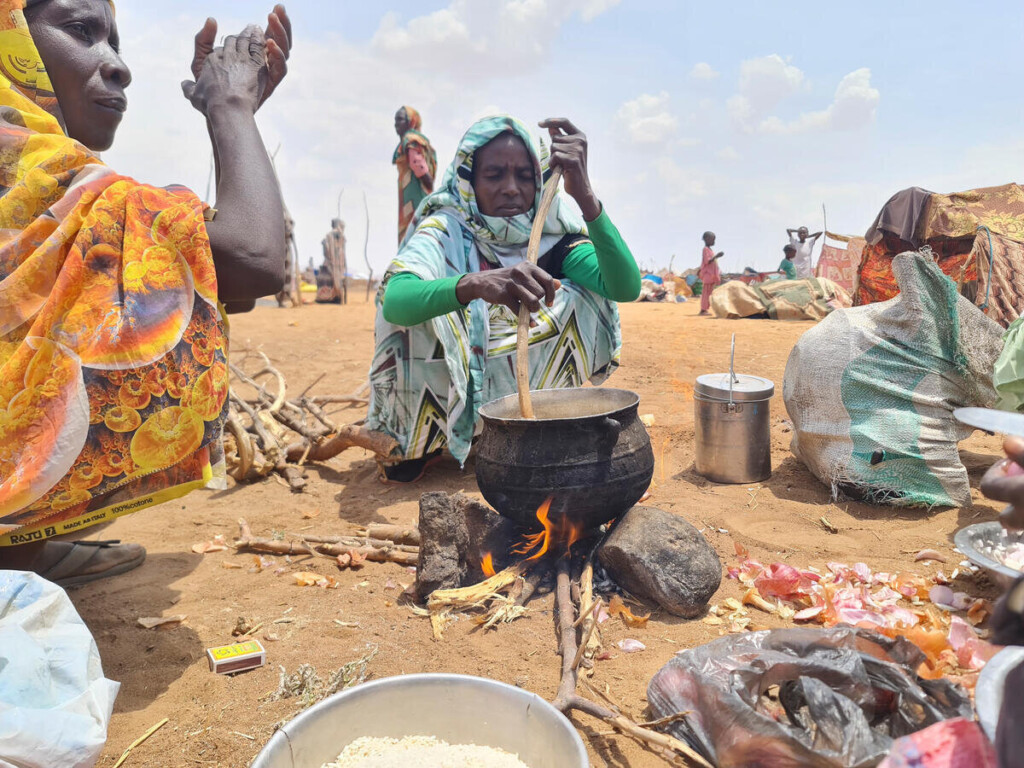
Immediate ceasefire and relief delivery
However, Baldo warns against relying on the American initiative and placing all hopes and expectations on it. He says that America itself has problems under the Trump administration, represented by its weakening of the State Department, its complete withdrawal from the field of international aid, and the “dispersion” of all accumulated administrative expertise regarding conflicts in the world and Sudan in particular. He added, “It is important to push for a ceasefire and a cessation of hostilities as a primary goal, and to make it part of the joint discourse of civilian forces, as a preliminary step to a ceasefire and the delivery of aid.”
Baldo calls for the necessity of civilian forces being present during the ceasefire phase. He says, “Civilians must be present during the cessation of hostilities and not leave the matter to the military alone. Let us remember that when we left matters to the military, the result was this destructive war that we are witnessing today.” He added, “We can no longer trust the military, nor their wisdom. Civilians must have the loudest and most powerful voice in this matter.”







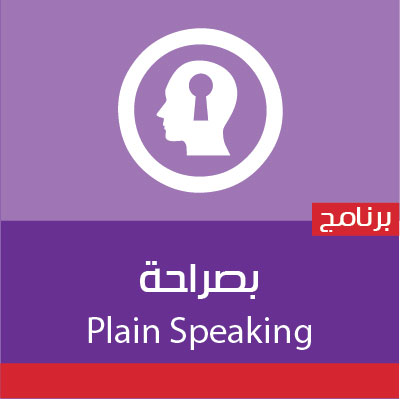

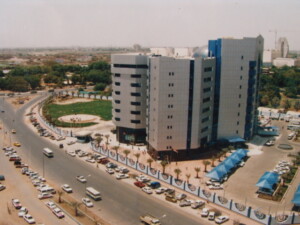
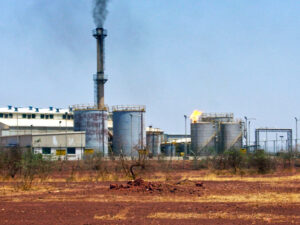

 and then
and then